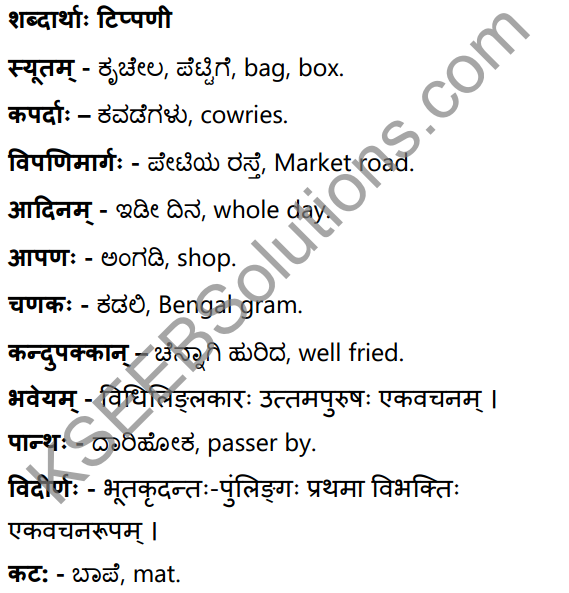Students can Download Sanskrit Shevadhi Lesson 7 ज्यौतिषिकस्य दिनम् Questions and Answers, Notes Pdf, Summary, 1st PUC Sanskrit Textbook Answers, helps you to revise complete Karnataka State Board Syllabus and score more marks in your examinations.
Karnataka 1st PUC Sanskrit Textbook Answers Shevadhi Chapter 7 ज्यौतिषिकस्य दिनम्
ज्यौतिषिकस्य दिनम् Questions and Answers, Notes, Summary
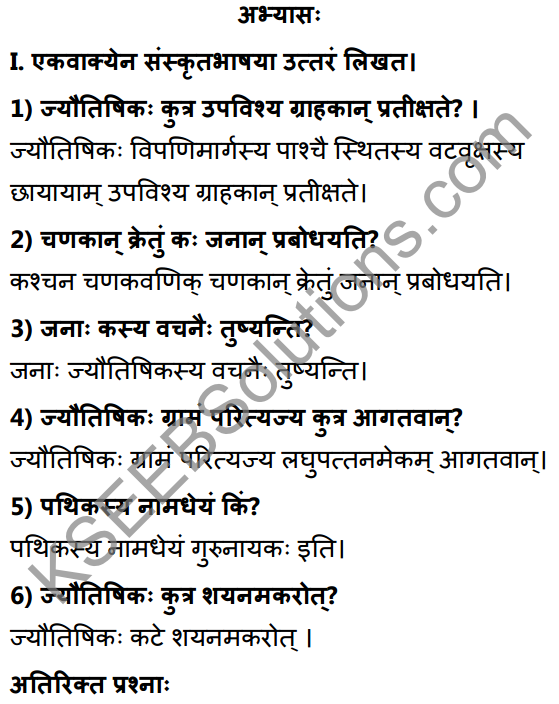
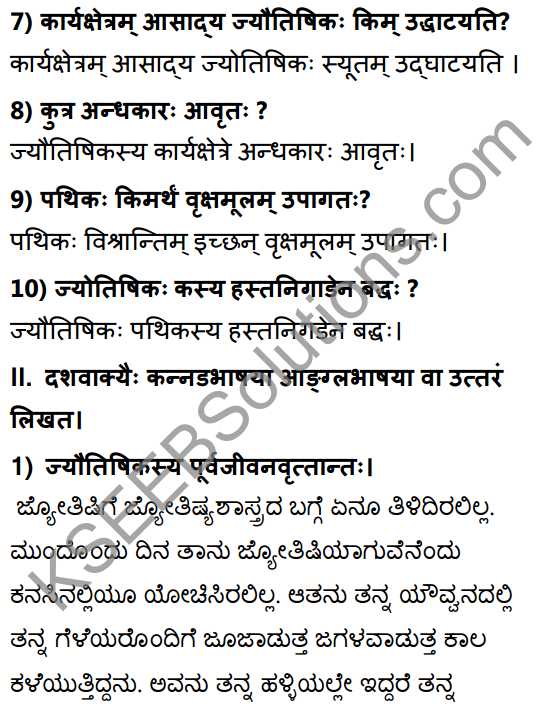
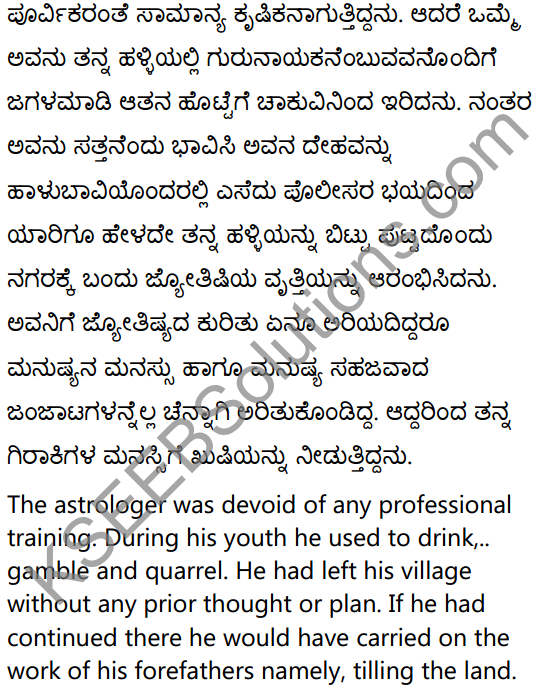
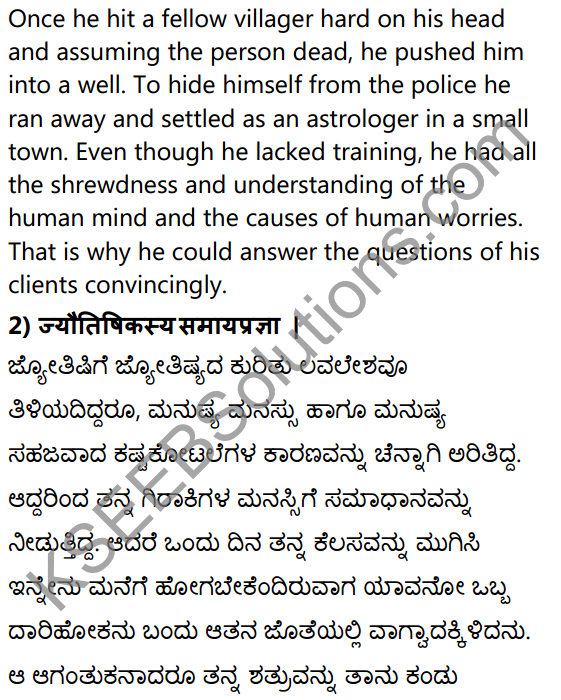
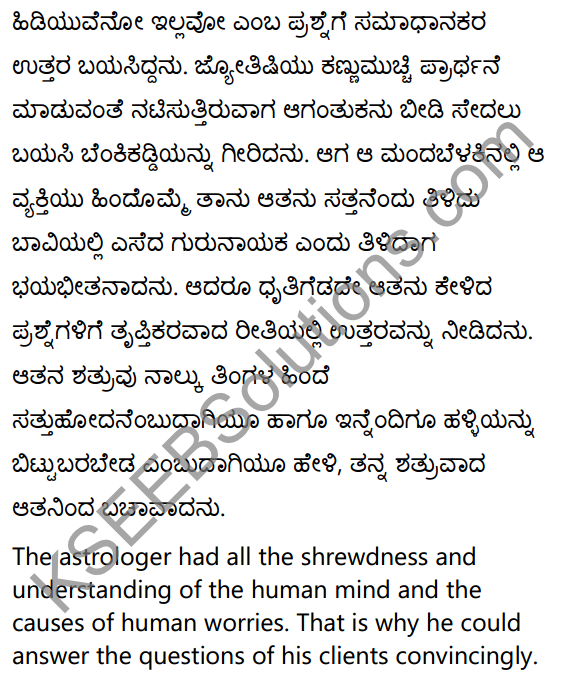
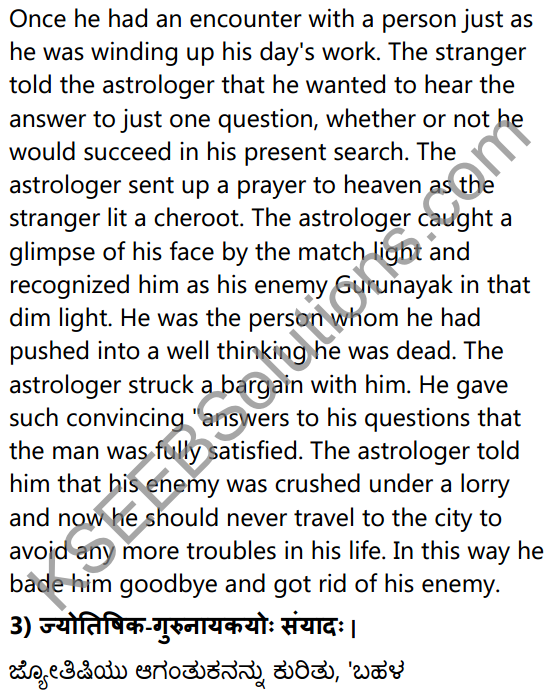
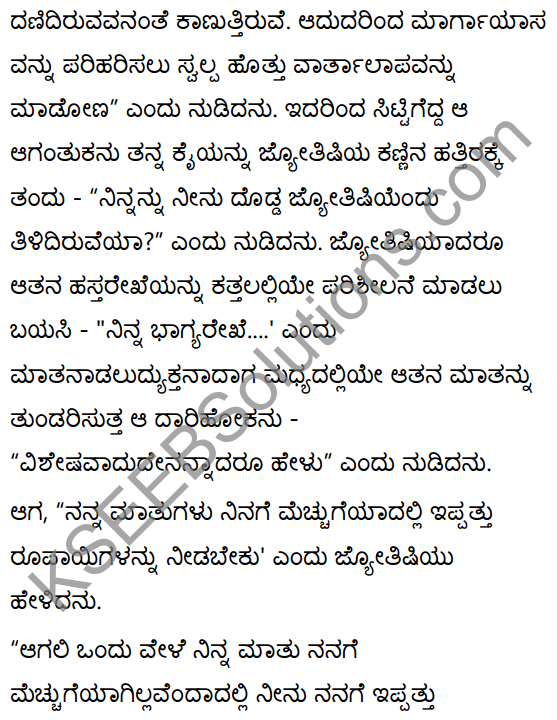
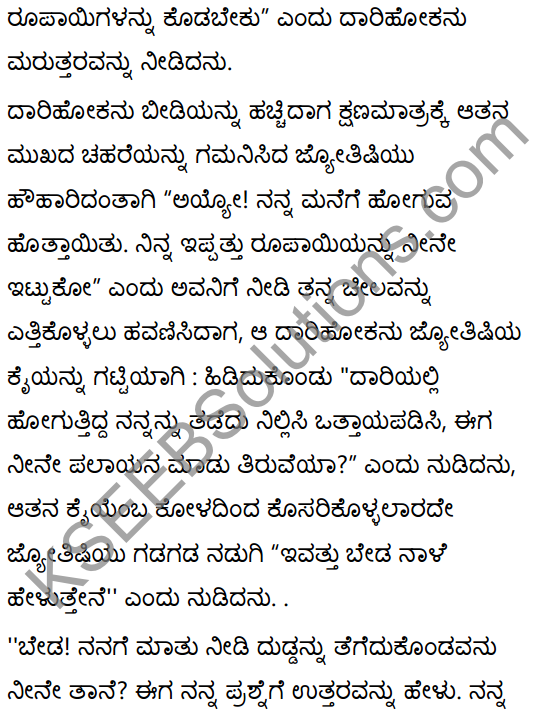
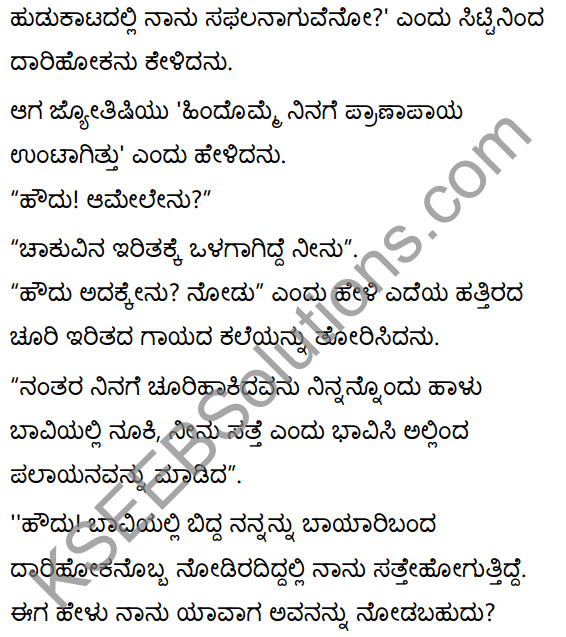
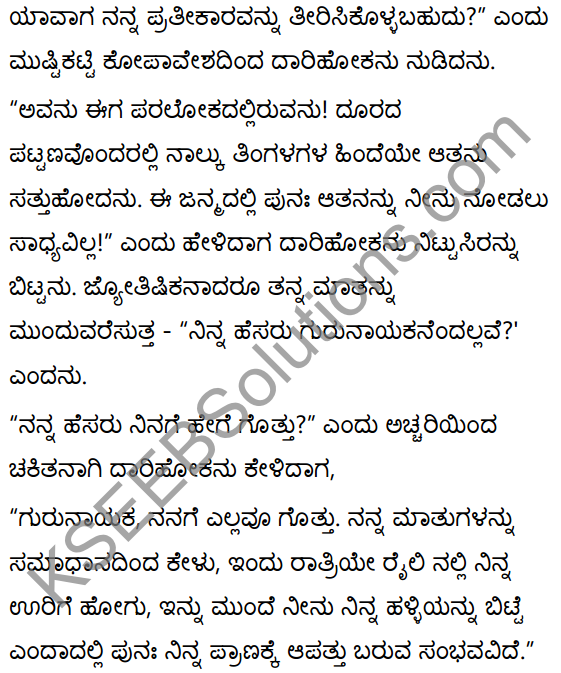
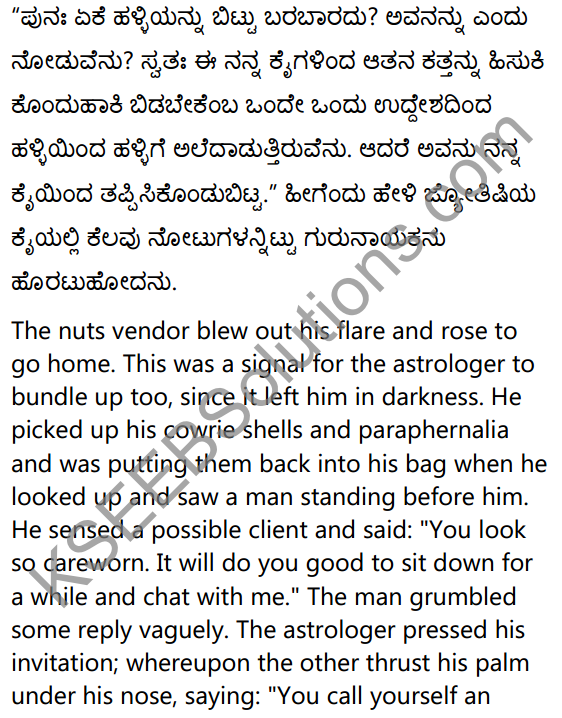
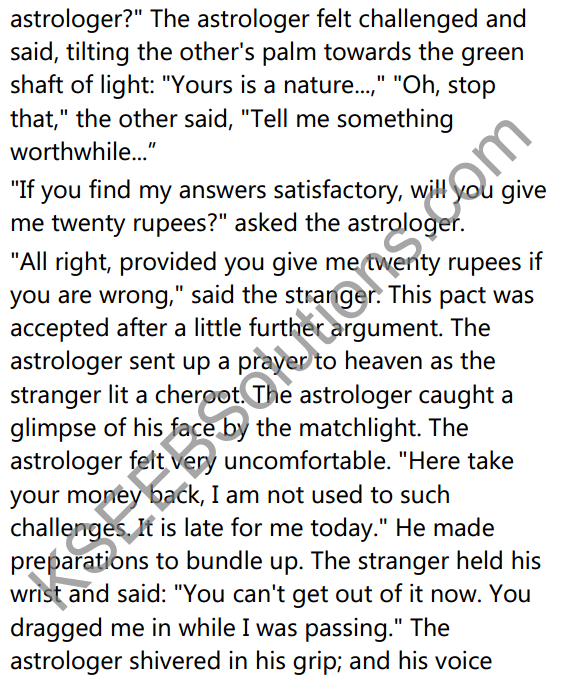
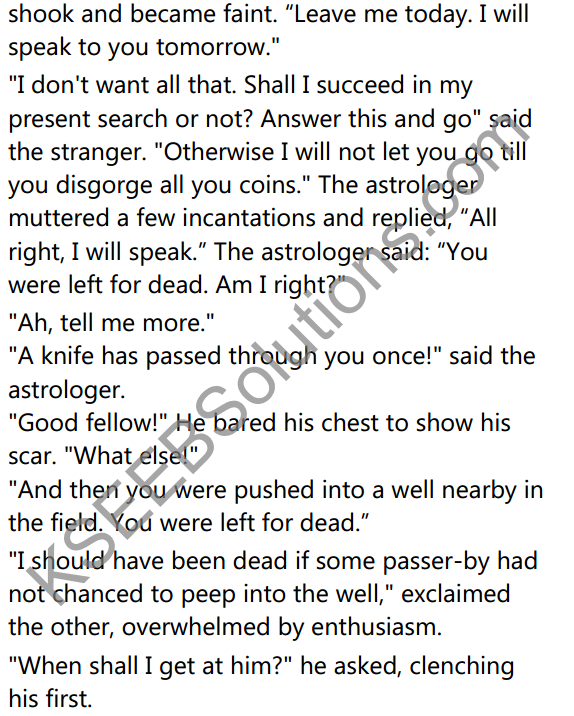
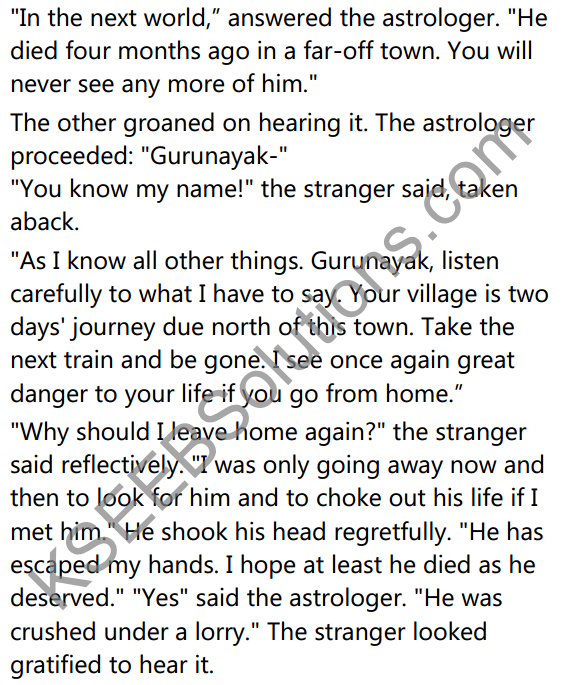
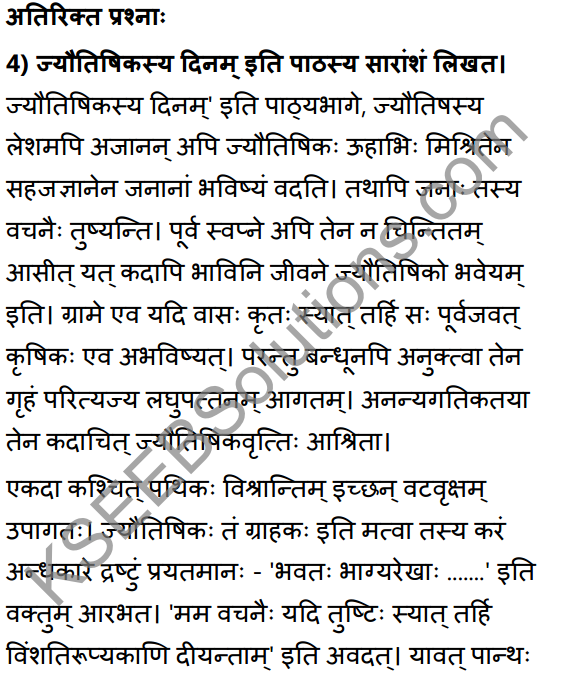
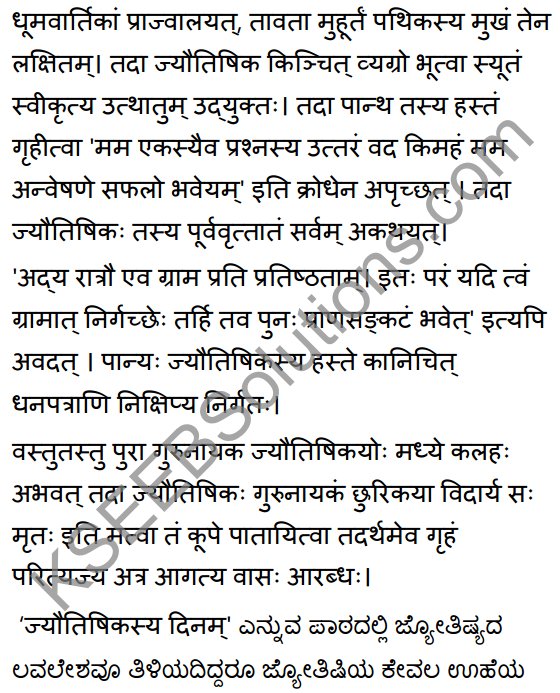
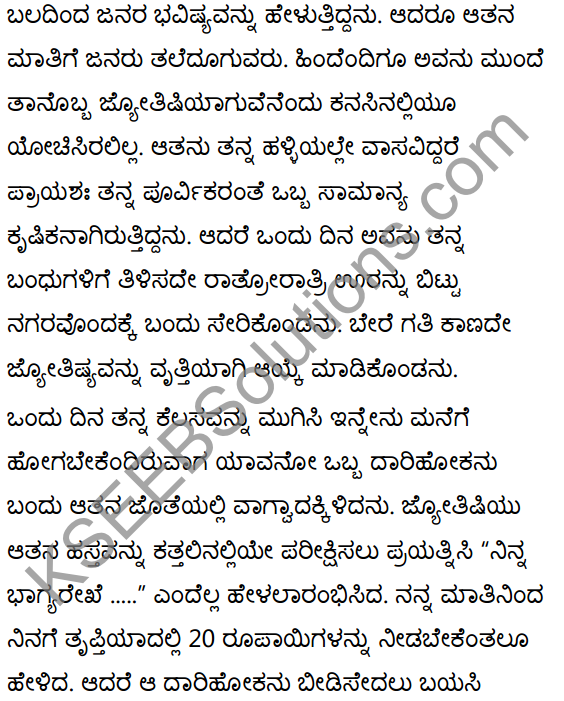
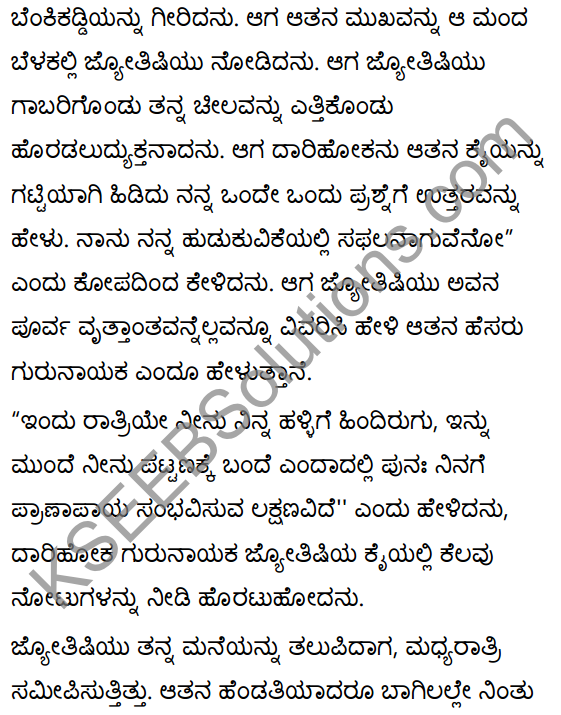
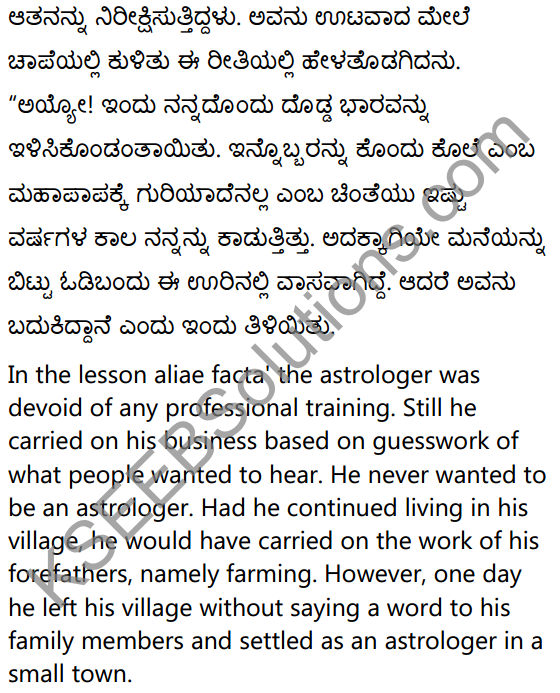
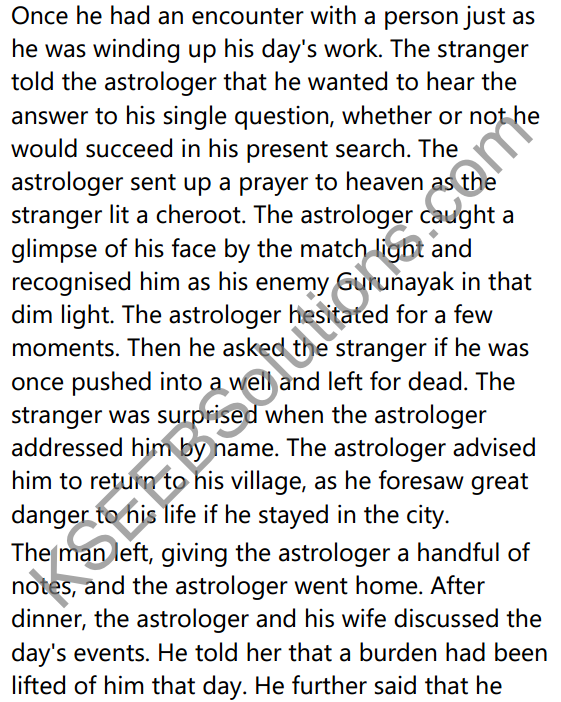
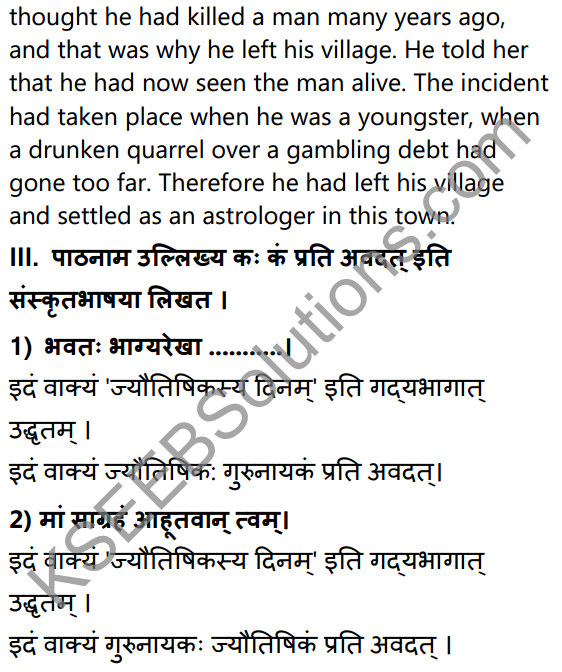
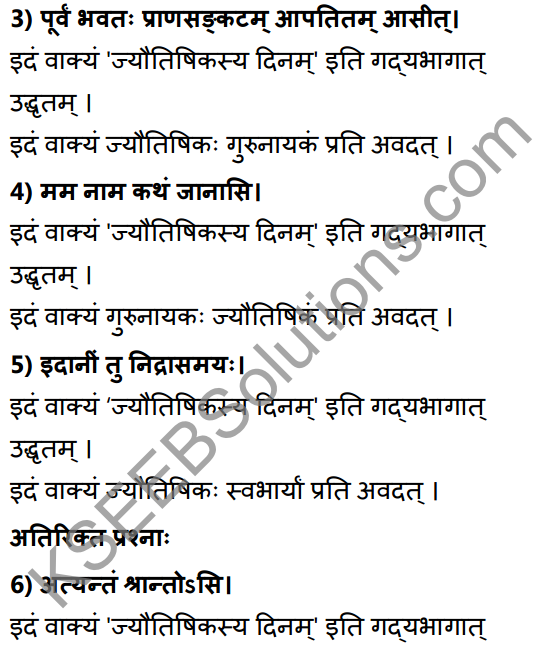
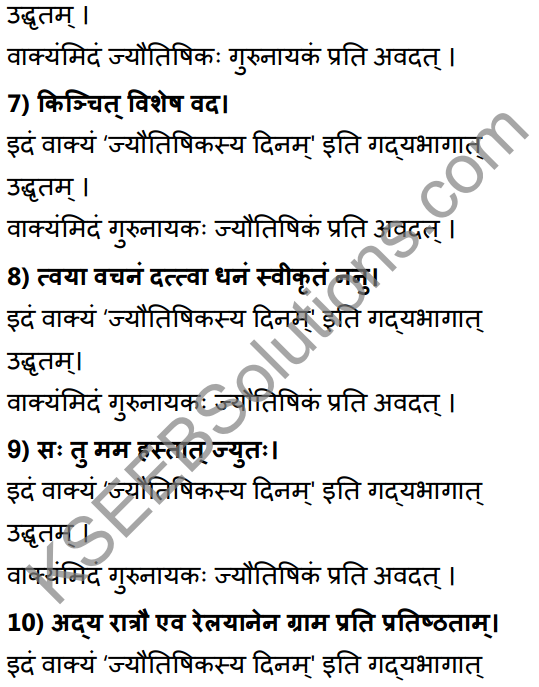
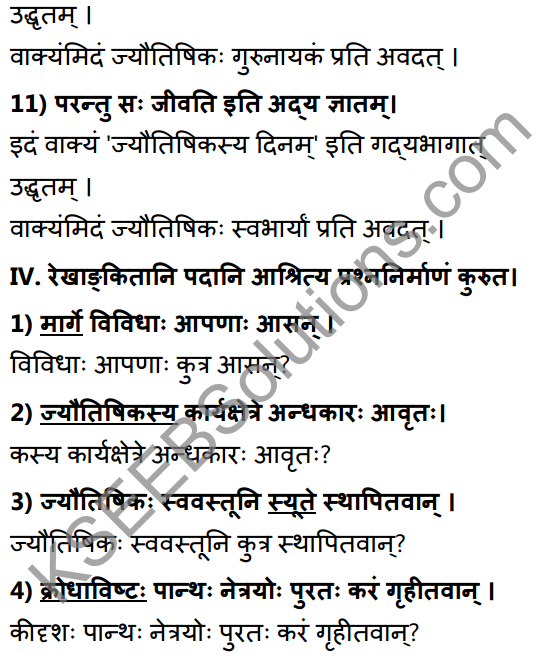
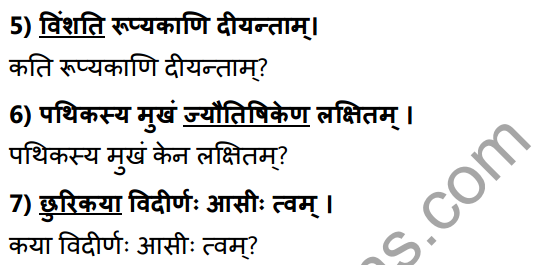
ज्यौतिषिकस्य दिनम् Summary in Kannada
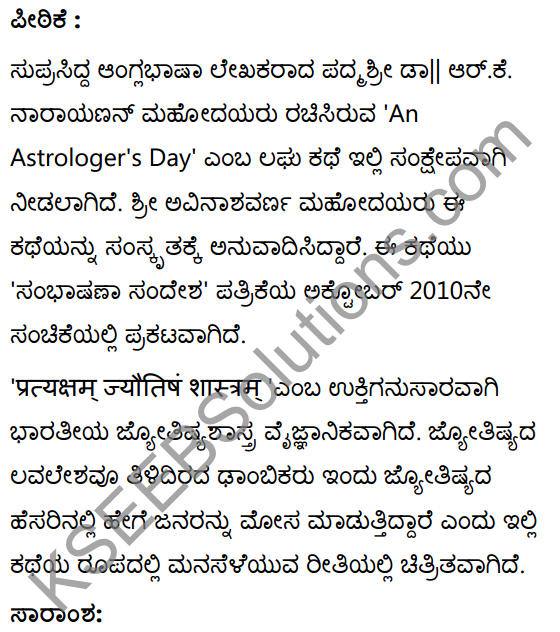
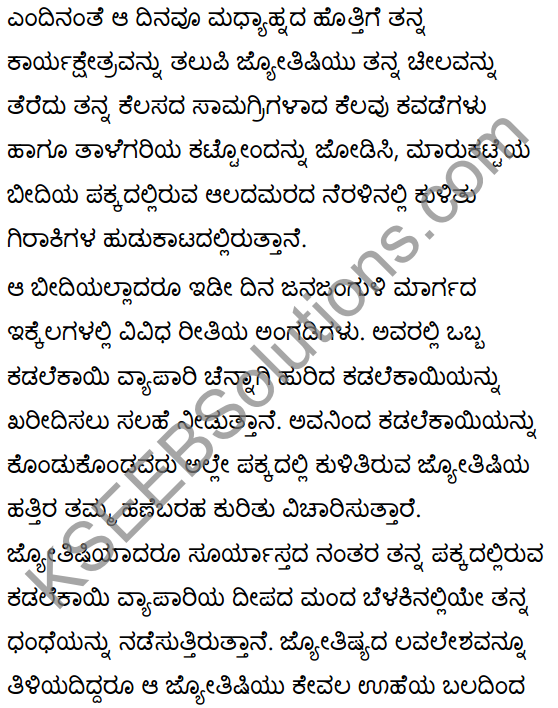
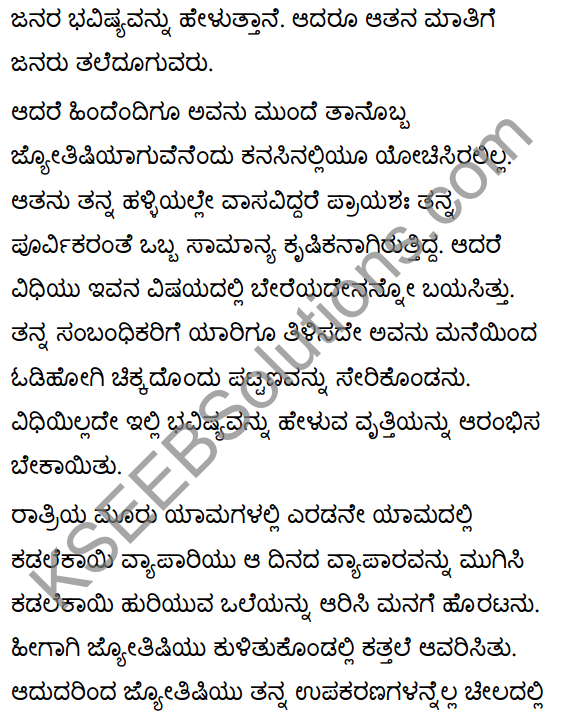
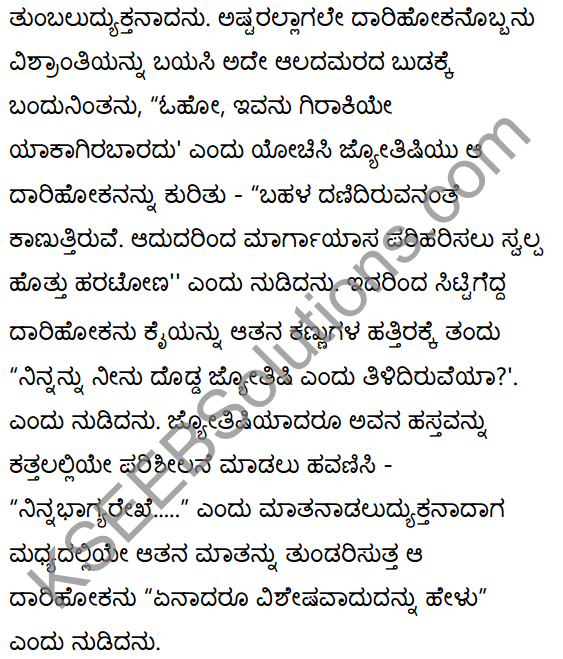
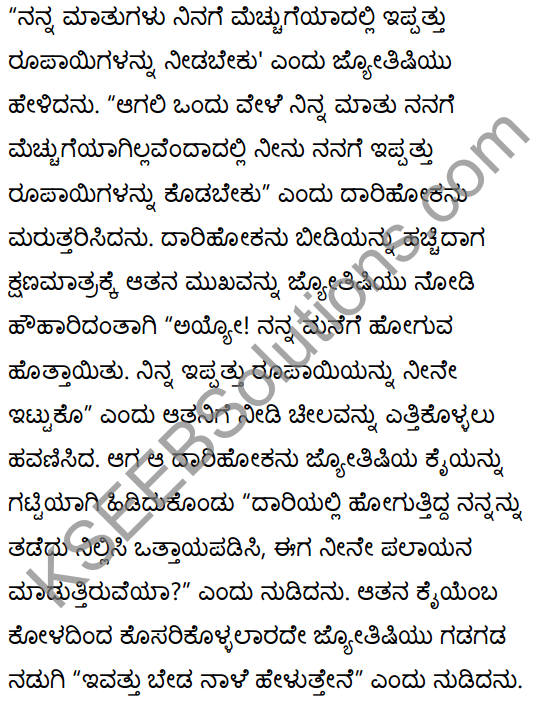
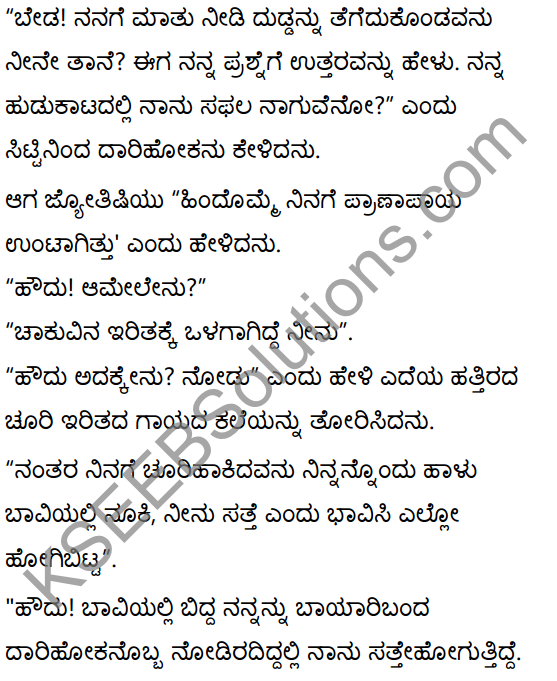
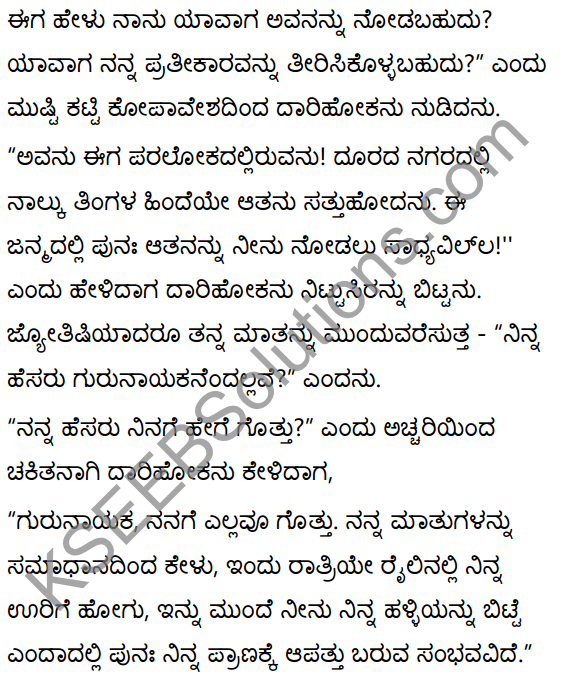
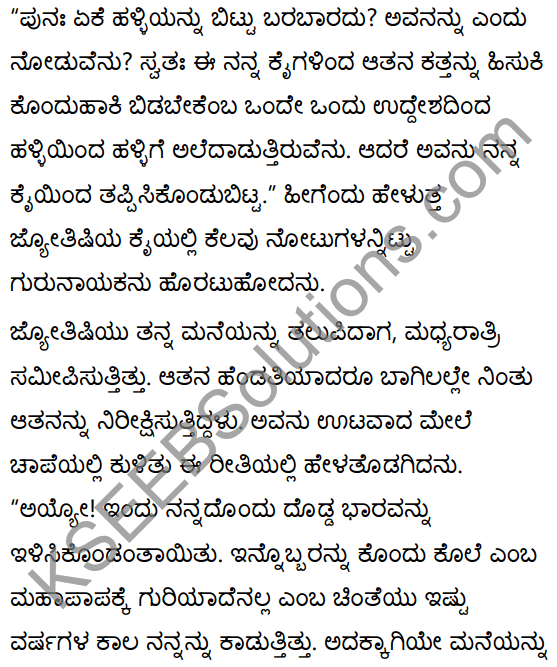
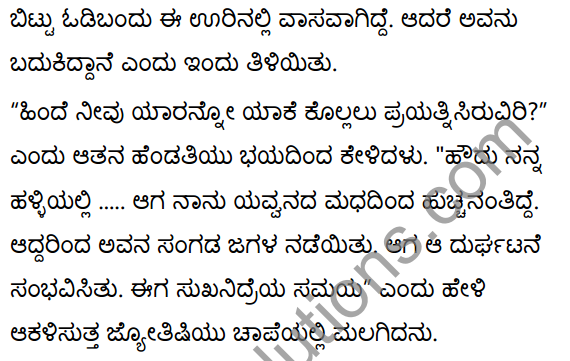
ज्यौतिषिकस्य दिनम् Summary in English
Introduction
‘An Astrologer’s Day’ is a short story written by the famous English writer Padmshree Dr. R.K. Narayan. Avinashvarna has translated the story from English to Sanskrit. The story was published in the October 2010 issue of the monthly magazine ‘संभाषण संदेश’.
According to the saying ‘प्रत्यक्षम् ज्यौतिषं शास्त्रम्’ Indian astrology is very scientific. Not knowing anything about astrology fake astrologers cheat people. This fact has been given here in the form of an attractive story.
Summary
The astrologer arrived at his roadside office at midday. He worked under a banyan tree near Market Road. It was lighted by the sputtering flare of the groundnuts vendor nearby. His office equipment included cowrie shells, a piece of cloth painted with obscure mystic charts, a notebook, and a bundle of palmyra writing. He wore a saffron-colored turban around his head; his forehead was painted with sacred ash and vermillion. Customers came to him due to the sparkle in his eyes which they mistook for a prophetic light.
The astrologer carried on his business based on guesswork of what people wanted to hear. He never wanted to be an astrologer, but fate forced the profession on him.
The astrologer was born in a small village, and was destined to live there with his family. However, one day he left the village, without a word to anyone, and travelled hundreds of miles to settle in the city and started working under the banyan tree.
He based his profession of astrology on his knowledge of mankind’s troubles. These troubles included problems arising from marriage, money, and the tangles of human ties. His method was simple. He did not utter a word until his customer spoke to him for at least ten minutes. Then, based on this speech, he formulated answers, questions and predictions. His normal predictions were:”In many ways you are not getting the fullest results for your efforts,” or “Most of your troubles are due to your nature… You have an impetuous nature and a rough exterior.”
When the groundnuts-vendor blew out the fire that lit the astrologer’s workplace, he knew it was time to go home. As he was packing his cowrie shells, he looked up and saw a man before him. He tried to attract the man in with a promise of telling his fortune. The astrologer said that the stranger should give him twenty rupees if he liked his answers. The stranger agreed but said that the astrologer would have to give him twenty rupees if he was not satisfied with the answers. The stranger lighted up a cheroot, and by the light of the match, the astrologer caught a glimpse of his client’s face. For a moment, the world seemed to come to a standstill for the astrologer after looking at his client’s face.
The stranger told the astrologer that he wanted to hear the answer to just one question, whether or not he would succeed in his present search. The astrologer hesitated for a few moments. Then he asked the stranger if he was once pushed into a well and left for dead. The stranger’s interest picked up. He asked if a knife was used in the fight; the stranger answered in the affirmative. The stranger asked when would he find the man who tried to kill him, and the astrologer replied that he would see him only in the next world, because the person had died in an accident. The stranger was frustrated at hearing that he would not be able to avenge his attempted murder. But, he was surprised when the astrologer addressed him by name and advised him to return home to his village, as he foresaw great danger to his life if he stayed in the city.
The man left, giving the astrologer a handful of notes, and the astrologer went home. After dinner, the astrologer and his wife discussed the day’s events. He told her that a burden had been lifted from him that day. He further said that he thought he had killed a man many years ago, and that was why he had left his village. He told her that he had now seen the man alive, and thus, he is no longer guilty of murder. He told her that the incident had taken place when he was a youngster, when a drunken quarrel over a gambling debt had gone too far. She was horrified, but the astrologer went to sleep with a clear conscience.
